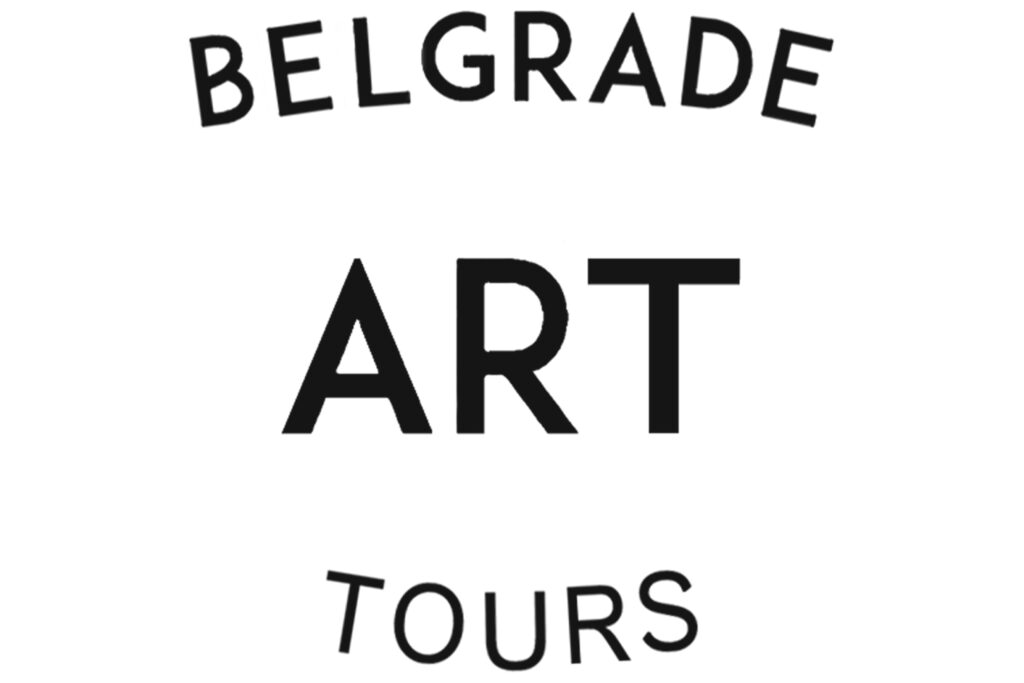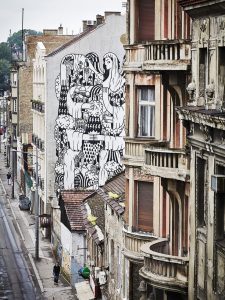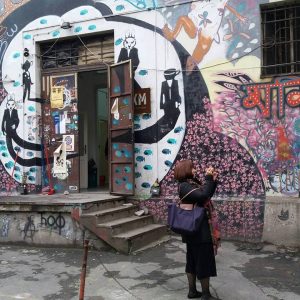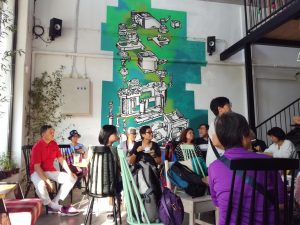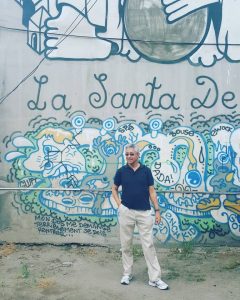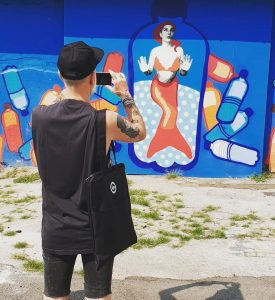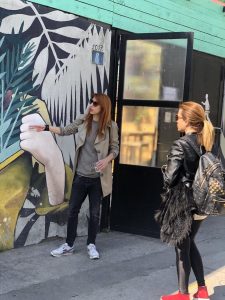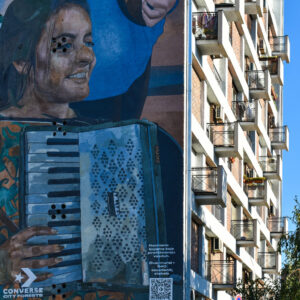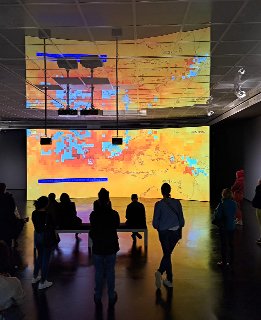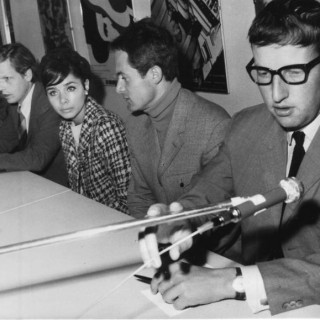
CZKD Cinema
June 26-27, 19h
The Oberhausen Manifesto
Introduction: Aleksandra Sekulić
In 1962, the proclamation of the Oberhausen Manfesto marked the beginning of the New German Film. On a DVD edition published in 2012, there are 19 short films from 1958-1964 produced, directed, photopgraphed or edited by one or more of the filmmakers who signed the manifesto.
In 2014, the Oberhausen Festival of Short Film celebrated 60 years of existance. Since its begining, when it defied the official politics by the screening of the films by Alain Resnais, continously inviting directors from East Germany (as from all other countries) and screening of the anti-war films was left without the financial support of the state for the next two decades, this festival became the key point of articulation and affrimation of artistic courage.
„The films were allowed to take risks, and so was the festival that selected them.“ Lars Henrik Gass, the director of the Festival, the speech at the openning of the 60th Oberhausen Short Film Festival
The screening program
(note: all films have English subtitles)
June 26, 19h
Menschen im Espresso – West Germany 1958, 16’ – Directed and written by: Herbert Vesely – Narration: Wilfried Berghahn – Cinematography by: Wolf Wirth – Edited by: Inge Walter – Produced by: Herbert Vesely for SWR
Schicksal einer Oper – West Germany 1958, 10’ – Directed and written by: Bernhard Dörries, Edgar Reitz, Stefan Meuschel – Cinematography by: Bernhard Dörries, Edgar Reitz – Edited by: Bernhard Dörries – Produced by: Studio für Dokumentarfilme / Filmstudio Walter Leckebusch
Glühendes Eiland Kreta – West Germany 1958, 12’ – Directed and photographed by: Pitt Koch – Drehbuch: Pitt Koch, Thomas Münster – Edited by: Ursel Werthner – Produced by: Artfilm
Das magische Band – West Germany 1959, 21’ – Directed by: Ferdinand Khittl – Written by: Bodo Blüthner, Ernst von Khuon, Ferdinand Khittl – Cinematography by: Ronald Martini – Edited by: Irmgard Henrici – Music by: Oskar Sala – With Margot Trooger, Ferdinand Khittl – Produced by: Gesellschaft für Bildende Filme for BASF
Moskau ruft – West Germany 1959, 12’ – Directed and written by: Peter Schamoni – Cinematography by: Jost Vacano – Music by: Occamstreet Footwarmers – Produced by: Schongerfilm
Stunde X – West Germany 1959, 4’ – Directed, written and edited by: Bernhard Dörries – Cinematography by: Wolf Wirth – Music by: Josef Anton Riedl – Produced by: Neue Filmform / Filmstudio Walter Leckebusch
Trab Trab – West Germany 1959, 11’ – Directed by: Detten Schleiermacher – Written by: Marc Vallier – Cinematography by: Wolf Wirth – Edited by: Ursel Werthner – Music by: Hans Loeper – Produced by: Detten Schleiermacher / Wolf Wirth
Salinas – West Germany 1960, 11’ – Directed and written by: Raimond Ruehl – Cinematography by: Pitt Koch – Edited by: Ursel Werthner – Music by: Hans Loeper – Produced by: Artfilm – Premiere: October 1960 (Internationale Filmwoche Mannheim)
Break 10 minutes
“…. Geist und ein wenig Glück” – West Germany 1965. 31’ – Directed and written by: Ulrich Schamoni – Cinematography by: Petrus R. Schloemp – Edited by: Heidi Rente – With Ferdinand Khittl, Haro Senft, Franz-Josef Spieker, Vlado Kristl, Peter Schamoni, Enno Patalas, Ulrich Gregor, Uwe Nettelbeck, Rudolf Noelte, Hilmar Hoffmann, Artur Brauner, Peter Bamberger, Rudolf Thome, Klaus Lemke, Max Zihlmann – Produced by: Axel Jahn Film- und Fernsehproduktion for ZDF – Premiere: 25.6.1965 (ZDF)
June 27, 19h
Brutalität in Stein – West Germany 1961, 11’ – Directed and written by: Peter Schamoni, Alexander Kluge – Cinematography by: Wolf Wirth – Edited by: Heidi Rente – Music by: Hans Posegga – Produced by: Peter Schamoni Filmproduktion / Kurzfilmproduktion Dieter Lemmel – Premiere: February 8, 1961 (Westdeutsche Kurzfilmtage Oberhausen)
Kommunikation – West Germany 1961, 11’ – Directed, written and photographed by: Edgar Reitz – Edited by: Anni Giese – Music by: Josef Anton Riedl – Produced by: Bavaria-Filmkunst Sonderproduktion for Deutsche Bundespost – Premiere: February 28, 1962 (Westdeutsche Kurzfilmtage Oberhausen)
Notizen aus dem Altmühltal – West Germany 1961, 17’ – Directed and written by: Hans Rolf Strobel, Heinrich Tichawsky – Cinematography by: Heinrich Tichawsky – Produced by: Produktion Strobel-Tichawsky – Premiere: February 11, 1961 (Westdeutsche Kurzfilmtage Oberhausen)
Plakate der Weimarer Republik – West Germany 1962, 10’ – Directed by: Haro Senft – Written by: Haro Senft, Hans Loeper – Cinematography by: Hans Furchner – Edited by: Ursel Werthner – Music by: Hans Loeper – Produced by: Haro Senft Filmproduktion – Premiere: February 1962 (Westdeutsche Kurzfilmtage Oberhausen)
Süden im Schatten – West Germany 1962,9’ – Directed and photographed by: Franz-Josef Spieker – Written by: Franz-Josef Spieker, Gualtiero Guidi – Music by: Hans Loeper – Produced by: Kurzfilmproduktion F.-J. Spieker
Das Unkraut – West Germany 1962, 11’ – Directed by: Wolfgang Urchs – Written by: Detten Schleiermacher, Boris von Borresholm – Cinematography by: Peter Rosenwanger – Music by: Wilhelm Killmayer – Produced by: TC Trickstudio / Lux-Film – Premiere: October 17, 1962 (Internationale Filmwoche Mannheim)
Es muß ein Stück vom Hitler sein – West Germany 1963, 11’ – Directed and written by: Walter Krüttner – Cinematography by: Fritz Schwennicke – Music by: Erich Ferstl – Produced by: Cineropa-Film – Premiere: October 16, 1963 (Internationale Filmwoche Mannheim)
Anmeldung – West Germany 1964, 10’ – Directed, written and edited by: Rob Houwer – Cinematography by: Fred Tammes – Music by: Erich Ferstl – Cast: T. Vleeming-Vierdag – Produced by: Houwer-Film – Premiere: June 1964 (Berlinale)
Marionetten – West Germany 1964, 11’ – Directed and written by: Boris von Borresholm – Cinematography by: Hans Schmid – Music by: Jochen Faber – Produced by: Lux-Film for Bundeszentrale für politische Bildung
Granstein – West Germany 1965, 13’ – Directed by: Christian Doermer – Written by: Christian Doermer, Detten Schleiermacher, Michael Schumann – Cinematography by: Ingo Grill, Lothar Spree, Konrad Kotowski – Edited by: Christian Doermer, Heidi Rente – With Ruth von Zerboni – Produced by: Cine Dokument Film
Break 10 minutes
Die Erben von Papas Kino – Austria 1968, 27’ – Directed and written by: Wilhelm Roth – Cinematography by: Peter Kodera – Edited by: Paula Dvorak – With Rob Houwer, Hans Rolf Strobel, Peter Schamoni, Norbert Kückelmann, Alexander Kluge, Marran Gosov, Werner Herzog, Edgar Reitz, Hans Toussaint, Hans Pflüger, Fred Hoffmann, Edgar Reitz – Produced by: WDS-Film for ORF
The program is realized in cooperation with the Oberhausen Short Film Festival
Internationale Kurzfilmtage Oberhausen
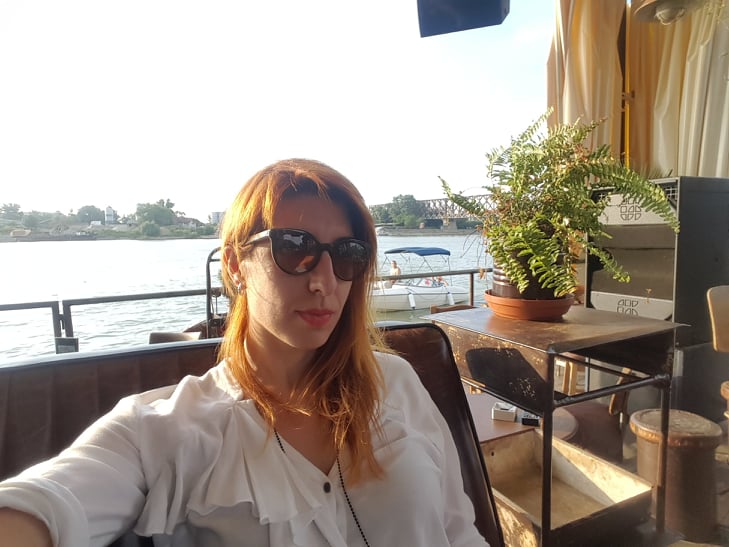
Writer. Blogger. Traveler. Researcher. Electronic Music Lover.






